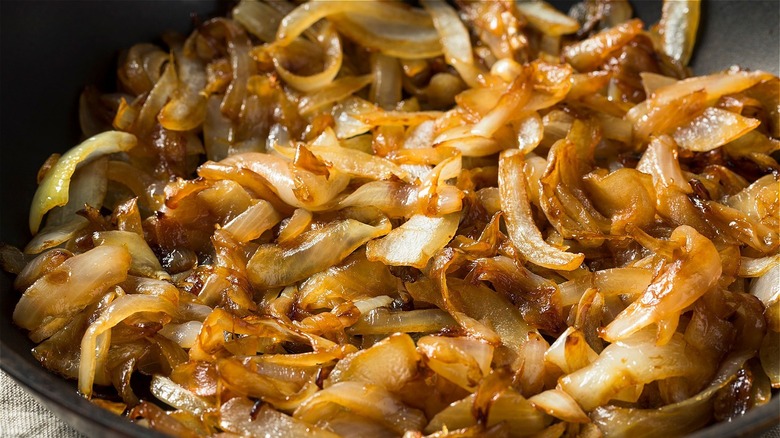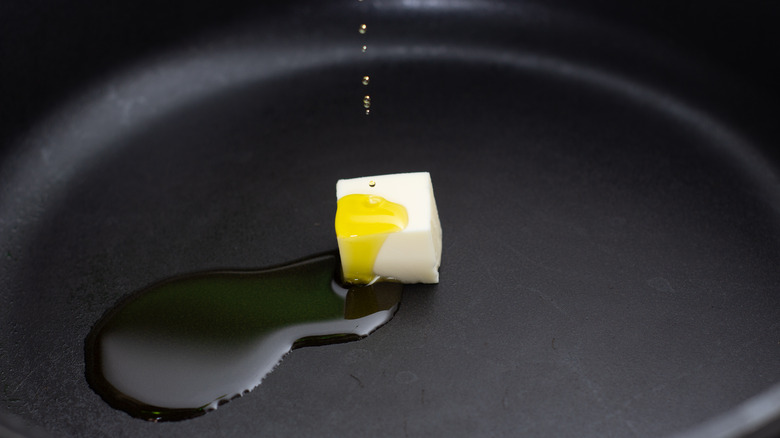Why You Should Combine Butter And Olive Oil To Caramelize Onions
Onions are a staple of every kitchen that, when prepared right, really sing, especially when they're slowly cooked in delicious ingredients like butter, olive oil, balsamic vinegar, or your favorite beer. Low and slow is the key here, and it's the main difference between caramelizing your onions and quickly sautéing them. A versatile topping packed with flavor, caramelized onions are the proverbial cherry on top for dishes that need an extra hint of savory sweetness. The caramelization process really brings out the natural sweetness locked within the onions, and you can even add a bit more by sprinkling them with sugar if your taste buds so desire — according to America's Test Kitchen, a little brown sugar "enhanced the onions' natural sweetness and helped the onions caramelize more quickly."
Slather them in a juicy burger or stir them into a warm French onion soup — there is no limit to the tastiness you can create with these little flavor powerhouses. Though, if you're caramelizing your onions with either butter or olive oil, it's better to combine them rather than using just one. Doing so will save you from a potentially crispy pan of failure and will instead get you that perfect golden-brown glaze caused by the Maillard reaction, or browning process. Here's why you should use a bit of both.
Add both oil with butter to avoid hitting the smoke point
Hitting the smoke point as you cook is no bueno. This means that your shimmering oil or melty butter starts smelling foul and burning off all nutrients present (via La Tourangelle). It also becomes flammable, begins releasing harmful toxins into the environment, and ruins any food it comes in contact with. Let's avoid all that, shall we? Butter's smoke point is around 350 F, per Serious Eats, which is about 50-100 degrees lower than most oils, so caramelizing onions over long chunks of time with just butter in your pan could burn them too fast. On the other hand, olive oil (not the extra-virgin type) has a higher smoke point, so mixing some in with your butter will prevent a scorched mess and still allow the onions to soak up all the butter's oh-so-heavenly flavors.
There are a wide variety of oils you can choose from when caramelizing onions, but be aware that they each might have different smoke points. Avocado is a great choice that won't blacken your food too quickly, followed in descending order by vegetable, sunflower, and peanut oil. According to Chef Works, when choosing an oil to use for cooking onions, be sure to stay away from extra virgin olive oil — "light or refined olive oil" is a better choice for prolonged heat. It's also important to note that you don't want to simply dump loads of fatty butter into your pan, as painful as that is to hear. We're caramelizing here, not frying!

